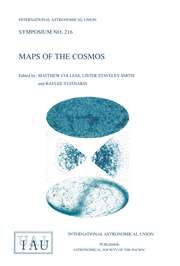No CrossRef data available.
Article contents
Software Implementation of Detection Algorithms for the MCSA
Published online by Cambridge University Press: 04 August 2017
Abstract
The NASA Multichannel Spectrum Analyzer (MCSA) supplies data in several formats and in a wide range of frequency resolutions. To decide if an extraterrestrial signal is present, this data is searched using detection algorithms particularly sensitive to signals concentrated in frequency and/or time. The algorithms, whose ultimate sensitivities are determined by theoretical considerations, are also constrained by available computing power. At present, practical detection of repetitive pulses is possible at an average power about five times lower than that for incoherent CW detection. After a period of field testing, the best detection algorithms, presently implemented in software, will be converted to hardware to increase their speed.
- Type
- Section VI. Technological Progress in Radio Searches
- Information
- Copyright
- Copyright © Reidel 1985




